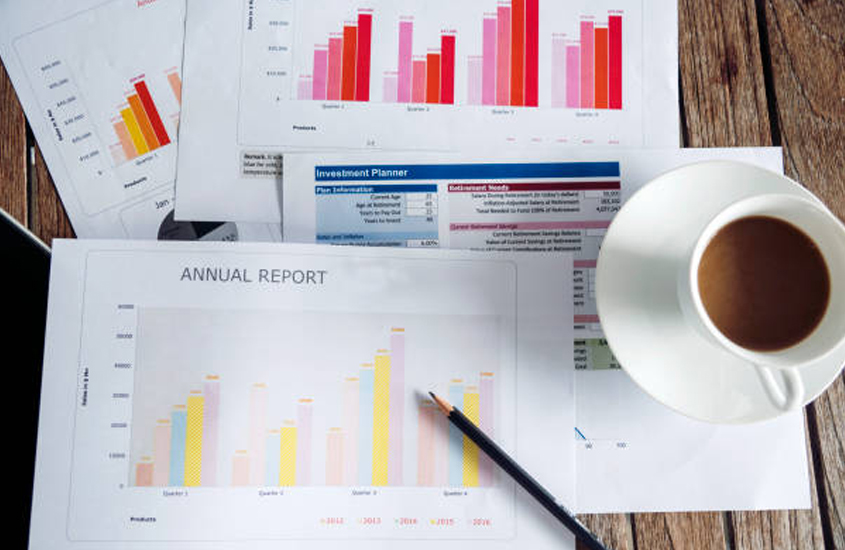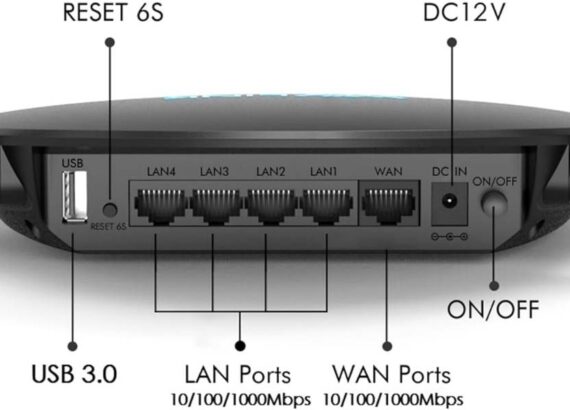In the intricate world of finance, where numbers hold the key to a myriad of secrets, there exist enigmatic individuals who possess the skills of modern-day detectives. These experts are not your typical investigators, but rather. They are the unsung heroes of the financial realm – the forensic accountants. Armed with a keen eye for detail, a deep understanding of accounting principles, and a relentless pursuit of the truth. They serve as the ultimate truth seekers in the face of financial wrongdoing. Forensic accounting Sacramento, also known as investigative accounting or financial forensics, is a specialized field that goes beyond the traditional boundaries of auditing and accounting. While auditors are primarily focused on ensuring the accuracy and compliance of financial statements. Forensic accountants delve deeper into the financial intricacies to uncover fraudulent activities, embezzlement, money laundering, and other financial crimes.
The demand for forensic accountants has grown exponentially in recent years. Driven by an increasingly complex and interconnected global financial landscape. From corporate scandals to high-stakes litigation, their expertise has become indispensable in identifying the hidden trails left behind by financial criminals. They are not just number crunchers but skilled investigators who use financial data as evidence to build compelling cases. In this journey of discovery, forensic accountants employ a wide array of sophisticated techniques and tools. Leveraging their analytical prowess to connect the dots in seemingly unrelated financial transactions. Their meticulous examination of financial records, bank statements. And electronic data trails can unravel the most intricate schemes and unveil the culprits behind financial deception.
Unravelling the World of Forensic Accounting
Forensic accounting, a specialized branch of accounting, holds the key to unlocking financial mysteries and exposing hidden truths in the complex world of finance.
Definition and Scope:
- Definition of forensic accounting and its primary objectives
- Understanding the scope of forensic accounting beyond traditional auditing
The Role of Forensic Accountants:
- Exploring the responsibilities of forensic accountants
- How they act as financial detectives and truth seekers
Detecting Financial Fraud:
- Identifying different types of financial frauds that forensic accountants investigate
- Illustrating real-world examples of high-profile fraud cases solved by forensic accounting
Solving Financial Crimes: Forensic Accountants in Action
Financial crimes, such as fraud, embezzlement, and money laundering, pose significant threats to the integrity of businesses and financial institutions. In the quest for justice, forensic accountants emerge as the relentless detectives who uncover the truth behind these complex and elusive criminal activities. In the face of intricate financial crimes, forensic accountants emerge as the dedicated investigators who tirelessly pursue the truth. Armed with a unique blend of accounting expertise and investigative skills. They play a pivotal role in solving complex cases that elude conventional methods.
Forensic accountants are adept at identifying red flags and warning signs of potential financial crimes. Enabling them to conduct thorough risk assessments and detect vulnerabilities in financial systems. Their work goes beyond mere number-crunching; they employ data analytics. And advanced tools to scrutinize large datasets, acquiring and preserving financial evidence that will stand up in legal proceedings. By following the money trail, they expose intricate money laundering operations and bring to light the methods used by criminals to obscure their tracks. Collaborating closely with law enforcement and legal teams, forensic accountants offer invaluable support throughout the investigative process. They work hand-in-hand with authorities, providing crucial financial evidence that strengthens the case against perpetrators.
How Forensic Accountants Work
Forensic accountants are the Sherlock Holmes of the financial world. Equipped with specialized skills and methodologies that allow them to uncover hidden financial truths. Their investigative process involves a systematic approach to analyzing financial data. Tracing transactions, and connecting the dots to expose fraudulent activities and financial crimes. Let’s delve into the step-by-step investigative process of these ultimate truth seekers:
Case Assessment and Engagement:
- Forensic accountants begin by understanding the nature and scope of the investigation. They assess the specific financial concerns, allegations, or suspicions raised by their clients. Which could be individuals, corporations, law enforcement agencies, or regulatory bodies.
- During this stage, the forensic accountant gathers all relevant documentation and evidence to create a foundation for the investigation.
Data Collection:
- The success of a forensic accounting investigation hinges on comprehensive data collection. Forensic accountants obtain financial records, bank statements, invoices, receipts, emails, and any other relevant information related to the case.
- They may also use specialized software and tools to extract and analyze digital data. Especially in cases involving cyber financial crimes.
Financial Statement Analysis:
- Analyzing financial statements is a fundamental aspect of forensic accounting. Forensic accountants meticulously review balance sheets, income statements, cash flow statements. And other financial reports to identify anomalies, irregularities, or potential red flags.
Digital Forensics and Cyber Financial Crimes
In an increasingly interconnected world, where financial transactions occur at the speed of light and digital technologies shape our daily lives. The landscape of financial crimes has taken a transformative turn. Cyber financial crimes, characterized by sophisticated digital tactics and malicious intent. Have emerged as a potent threat to individuals, businesses, and financial institutions worldwide. As technology evolves, so do the methods employed by cybercriminals. Making it imperative to counter their activities with cutting-edge investigative techniques. Enter digital forensic accounting Sacramento, the indispensable field at the forefront of unearthing evidence. And dissecting the digital footprints left behind by these modern-day financial criminals.
Understanding Cyber Financial Crimes: Cyber financial crimes encompass a broad spectrum of illicit activities that exploit digital platforms. And vulnerabilities to target financial assets and sensitive information. These crimes range from hacking into banking systems and conducting fraudulent transactions. To deploying social engineering tactics to deceive individuals into revealing confidential financial data.
Collaborating with Cybersecurity Experts: Collaborating with cybersecurity experts is a critical aspect of effectively countering the ever-evolving landscape of cyber threats. In this symbiotic partnership, digital forensics and cybersecurity professionals combine their unique skill sets to detect. Prevent, and respond to cyberattacks.
Investigating Cyber Financial Crimes: Investigating cyber financial crimes requires a delicate balance of technological expertise and astute detective work. Digital forensics investigators play a pivotal role in piecing together the virtual puzzle left by cybercriminals, meticulously analyzing digital trails. And uncovering critical evidence that leads to the identification and prosecution of perpetrators.
Beyond Corporations: Forensic Accounting in Personal and Government Settings
While forensic accounting Sacramento is commonly associated with its role in exposing financial frauds and misdeeds within corporations, its scope extends far beyond the corporate world. This specialized field of accounting plays a crucial role in both personal and government settings. Uncovering financial discrepancies, solving disputes, and aiding in public sector investigations.
Forensic Accounting in Personal Settings:
A. Divorce Proceedings: In divorce proceedings, forensic accountants play a crucial role in untangling complex financial webs to ensure fair asset distribution between parties. Their expertise in tracing hidden assets, evaluating financial records, and uncovering income discrepancies can be instrumental in achieving equitable settlements.
B. Fraudulent Activities in Small Businesses: Fraudulent activities in small businesses pose significant challenges. As they can often go unnoticed due to limited resources for internal controls and oversight. Forensic accountants play a crucial role in detecting such fraud by meticulously examining financial records, transactional data, and business operations.
Forensic Accounting in Government Settings:
A. Public Sector Fraud Investigations: Public sector fraud investigations form a critical aspect of forensic accounting’s contribution to the public interest. In this realm, forensic accountants play a vital role in detecting and combating financial misconduct within government agencies and institutions.
B. Identifying Financial Irregularities in Government Contracts: Identifying financial irregularities in government contracts is a critical aspect of forensic accounting’s role in the public sector. Forensic accountants meticulously scrutinize government contracts to ensure compliance with financial regulations and ethical standards. Through detailed examination of financial records and transactional data, they uncover potential overbilling, inflated costs, kickbacks, and other fraudulent practices.
Becoming a Forensic Accounting Sacramento
Forensic accounting is a specialized and exciting field that offers a unique blend of financial expertise and investigative skills. If you have a passion for numbers, a keen eye for detail, and a desire to uncover financial mysteries, a career as a forensic accountant might be the perfect fit for you. Here’s a guide on how to become a forensic accountant and embark on this rewarding professional journey:
Education and Qualifications:
- Pursue Further Education: Consider pursuing advanced degrees or certifications relevant to forensic accounting. Such as a Master’s in Forensic Accounting or Certified Fraud Examiner (CFE) designation. These credentials enhance your expertise and make you more marketable.
Gaining Experience and Skills:
- Work in Accounting or Auditing: Gain practical experience by working in accounting firms, auditing departments, or financial institutions. Familiarity with financial processes and regulations will be invaluable in forensic accounting.
- Develop Investigative Skills: Hone your investigative skills by taking courses in criminal justice, data analysis, and forensic techniques. An understanding of legal procedures is also beneficial in this field.
Challenges and Future Trends in Forensic Accounting
In an era marked by increasingly sophisticated financial crimes and rapidly evolving technology, the role of forensic accounting Sacramento has become more critical than ever before. Forensic accountants, often referred to as financial detectives, play a crucial part in investigating. And unraveling complex financial puzzles to expose fraud, embezzlement, and other illicit activities. However, as the financial landscape continues to transform, these truth seekers face a multitude of challenges that demand innovative solutions.
Challenges Faced by Forensic Accountants: Forensic accountants encounter a myriad of challenges in their quest to unravel financial mysteries and expose fraudulent activities. One of the primary hurdles is dealing with the digital complexities of modern finance. As they must navigate through vast and intricate digital data to trace financial transactions effectively.
Emerging Areas in Forensic Accounting: As the financial landscape continues to evolve, new challenges and complexities arise, prompting forensic accounting to expand into emerging areas. One such area is environmental and sustainability forensics. Where forensic accountants play a crucial role in investigating greenwashing practices and eco-crimes.
Regulatory and Legal Challenges: Forensic accountants encounter a myriad of regulatory and legal challenges in their pursuit of financial truth. Adapting to ever-changing financial regulations and reporting standards is paramount to maintaining accuracy and relevance in their investigations.
Collaboration with Law Enforcement and Legal Proceedings
In the pursuit of justice and the fight against financial crime, forensic accountants play a crucial role as key collaborators with law enforcement agencies and in legal proceedings. Their specialized skills and expertise in analyzing financial data make them invaluable assets in building strong cases. And presenting credible evidence in the courtroom. Let’s explore how forensic accountants collaborate with law enforcement and contribute to the success of legal proceedings.
Assisting Law Enforcement Agencies: Forensic accountants serve as invaluable allies to law enforcement agencies. Providing their specialized financial expertise in various criminal investigations. By meticulously examining financial records, transactions, and data. They help uncover critical evidence that can lead to the identification and prosecution of financial criminals.

Navigating Legal Challenges: Forensic accountants face a myriad of legal challenges as they present their findings in courtrooms and assist in financial crime cases. From withstanding rigorous cross-examinations to countering defense strategies aimed at undermining their evidence. These professionals must stay unwavering in their commitment to accuracy and objectivity.
Supporting Financial Investigations: Supporting financial investigations, forensic accountants play a pivotal role in unravelling complex financial transactions. And identifying potential instances of fraud or misconduct. Through their meticulous examination of financial records, data analysis, and adherence to forensic accounting standards.
Conclusion
Forensic accounting, as we have discovered, stands as a formidable force in the realm of finance. Embodying the spirit of truth-seeking and justice. Through their expertise, dedication, and analytical prowess, forensic accountants have emerged as the ultimate truth seekers, unravelling complex financial mysteries. And exposing those who would deceive and manipulate for personal gain. The significance of forensic accounting cannot be overstated. It serves as a powerful deterrent to financial criminals, warning them that their actions will not go unnoticed or unpunished. From fraudulent financial reporting to cyber financial crimes, forensic accountants have shown their adaptability. And resilience in the face of evolving threats, staying one step ahead. To protect the financial well-being of individuals, businesses, and governments alike.
Forensic Accounting Sacramento, the thriving hub of California’s financial landscape, the demand for forensic accounting services has reached new heights. As businesses and organizations seek to protect themselves from financial fraud and embezzlement. Skilled forensic accountants in the region play a pivotal role in uncovering hidden financial discrepancies and providing expert testimony in legal proceedings. Similarly, just as forensic accountants meticulously investigate financial data to reveal the truth, the best rangefinder technology exemplifies precision and accuracy in a different realm. Utilized by hunters, golfers, and outdoor enthusiasts, the best rangefinder aids in precisely measuring distances. Ensuring informed decisions and successful outcomes. Both forensic accounting and the best rangefinder share a common thread of providing crucial information to aid in making accurate decisions. Whether in legal matters or recreational pursuits, making them indispensable assets in their respective fields.







